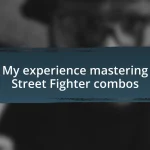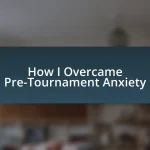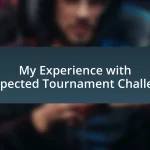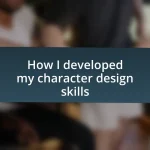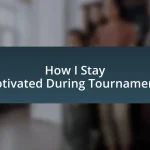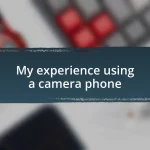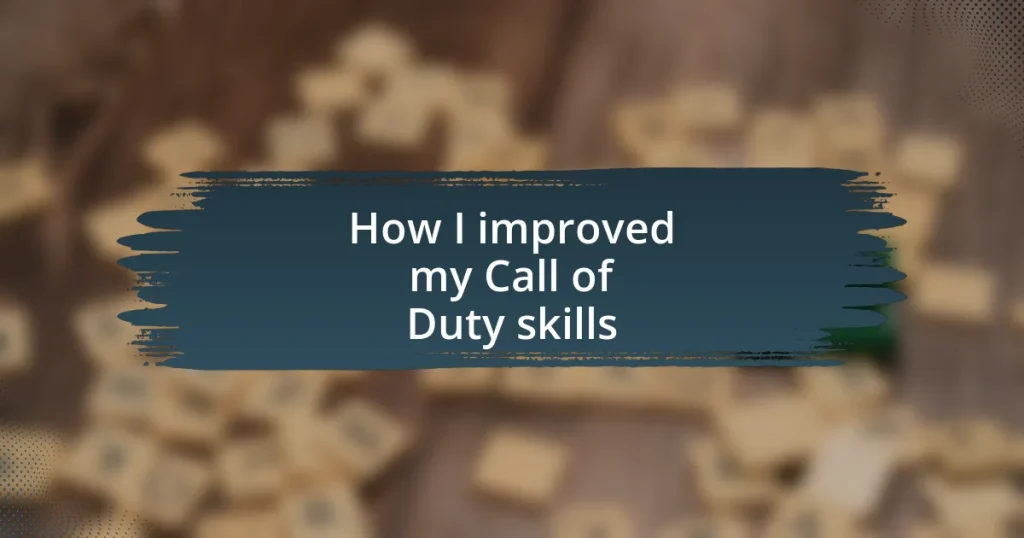Key takeaways:
- Setting clear and specific gaming goals improves focus and performance, making it easier to track progress through smaller milestones.
- Analyzing playstyle leads to better strategies, emphasizing patience, weapon synergy, and the importance of post-game reviews for learning from mistakes.
- Practicing with intention, using targeted drills and tracking performance, enhances skills and fosters steady improvement in gameplay.
- Effective communication and teamwork are crucial, as they strengthen player dynamics, boost morale, and can significantly influence match outcomes.
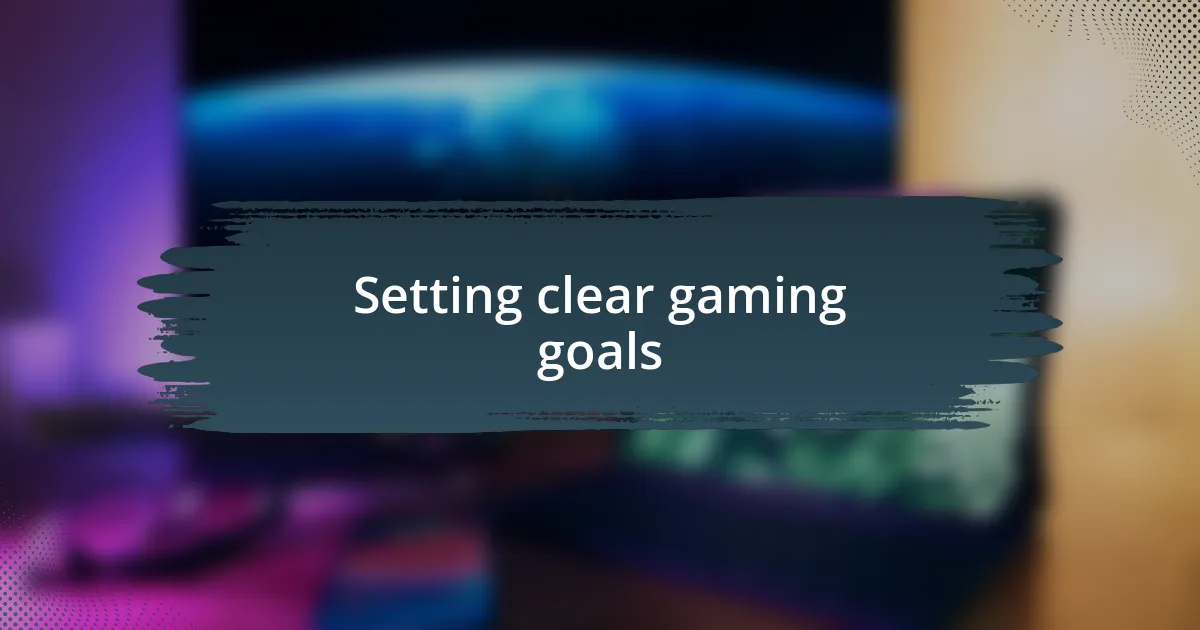
Setting clear gaming goals
Setting clear gaming goals is essential for improving your skills in Call of Duty. Personally, when I started setting specific targets, like aiming to achieve a certain kill/death ratio or mastering a new weapon each week, I noticed a significant boost in my performance. Have you ever felt overwhelmed by everything you want to improve? Narrowing my focus helped me channel my energy into areas that truly mattered.
One effective approach I’ve found is breaking down larger goals into smaller, manageable tasks. For example, instead of just striving to win more matches, I would focus on improving my map awareness or communication with teammates during each game. This strategy not only made my goals less intimidating but also allowed me to celebrate small victories along the way. Who doesn’t love the thrill of hitting a mini milestone?
I remember distinctly when I set a goal to practice my sniper skills. It felt daunting at first, but dedicating just 30 minutes a day transformed my gameplay. The excitement I felt after nailing that first long-range shot was unbelievable! Setting clear goals not only fuels motivation but also provides a sense of direction in your gaming journey. What goals will you set for yourself to elevate your game?
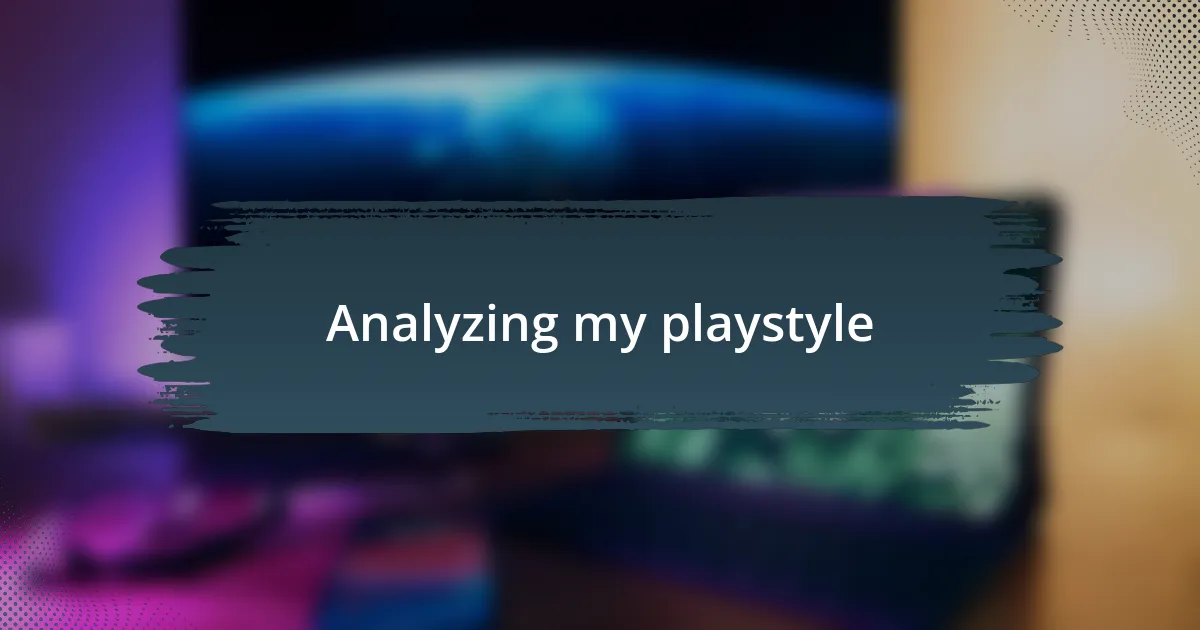
Analyzing my playstyle
Analyzing my playstyle has been an eye-opener in my journey with Call of Duty. I discovered that my initial instinct was to rush into battles, often leading to quick deaths and frustration. By taking a step back, I realized that patience and strategic positioning greatly improved my survival rate, allowing me to unleash more devastating attacks on my opponents.
In dissecting my game, I paid special attention to my weapon choices and their synergy with my playstyle. For instance, I found that using a submachine gun suited my tendency to engage in close-quarters combat, while a sniper rifle allowed me to capitalize on my newfound patience. Trying different loadouts was like experimenting in the kitchen — sometimes, the tastiest dish comes from unexpected combinations.
Moreover, I incorporated a review process after each session. I began reviewing gameplay recordings to analyze my decision-making. Seeing my mistakes firsthand stung, but it also provided valuable lessons. I vividly remember a match where I panicked and abandoned cover during a firefight; realizing this after the fact motivated me to practice staying calm under pressure. Have you ever replayed a game and felt that urge to cringe and laugh simultaneously? It became a humorous yet educational part of my growth.
| Playstyle Aspect | Before Analysis | After Analysis |
|---|---|---|
| Engagement Style | Rushed into Battles | Patience & Strategy |
| Weapon Choice | Varied Randomly | Synergized with Playstyle |
| Post-Game Review | Ignored Mistakes | Analyzed Gameplay |
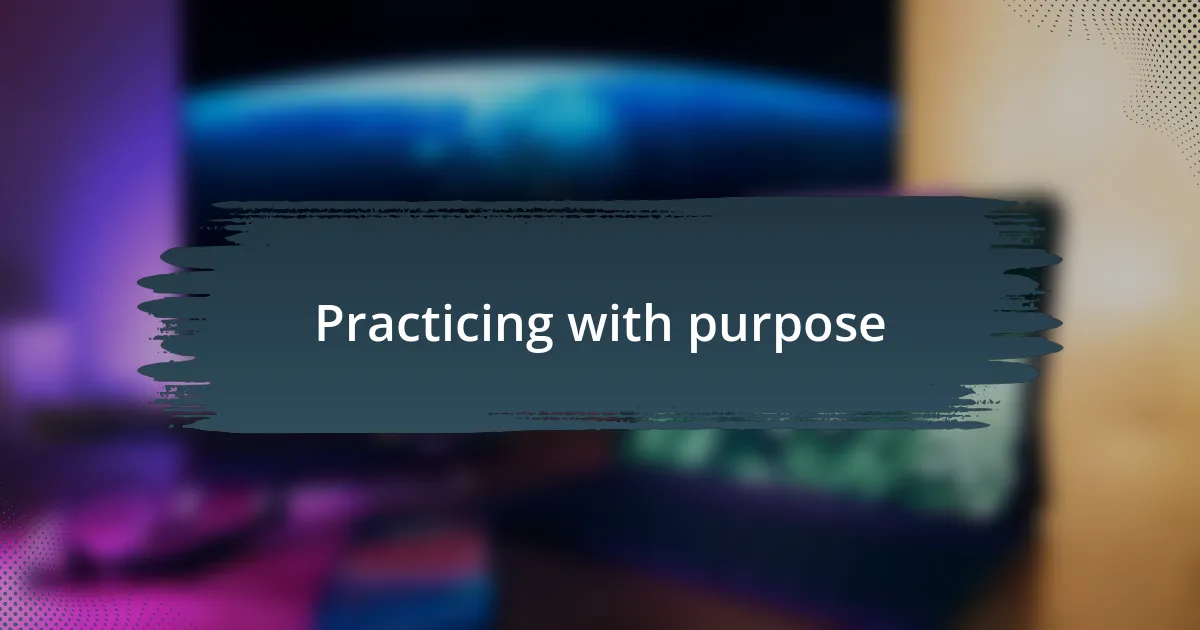
Practicing with purpose
Practicing with purpose means focusing on specific areas where you can improve rather than just playing for the sake of playing. I remember when I decided to work on my accuracy. Instead of jumping into frantic matches, I dedicated time to aim training drills in custom games. Nothing quite beats the satisfaction of seeing my accuracy stats steadily climb after a week of intentional practice. It was a game-changer, and I felt a rush of excitement each time I nailed the perfect headshot.
To make the most of your practice sessions, consider these targeted strategies:
- Set specific goals for each practice session, like improving your tracking or reaction time.
- Use tools or modes designed for skill enhancement, such as aim trainers or custom maps.
- Take a break and reflect on your performance after each session; it keeps burnout at bay and helps consolidate learning.
- Keep a performance journal to track your progress and adjust goals accordingly.
- Experiment with different playstyles; intentionally switch your approach to understand the strengths and weaknesses of various tactics.
With each session, I convinced myself that purposeful practice would shape me into a more lethal player. Each small victory fueled my determination, proving that even in a fast-paced game like Call of Duty, slow and steady improvement can lead to mastery.
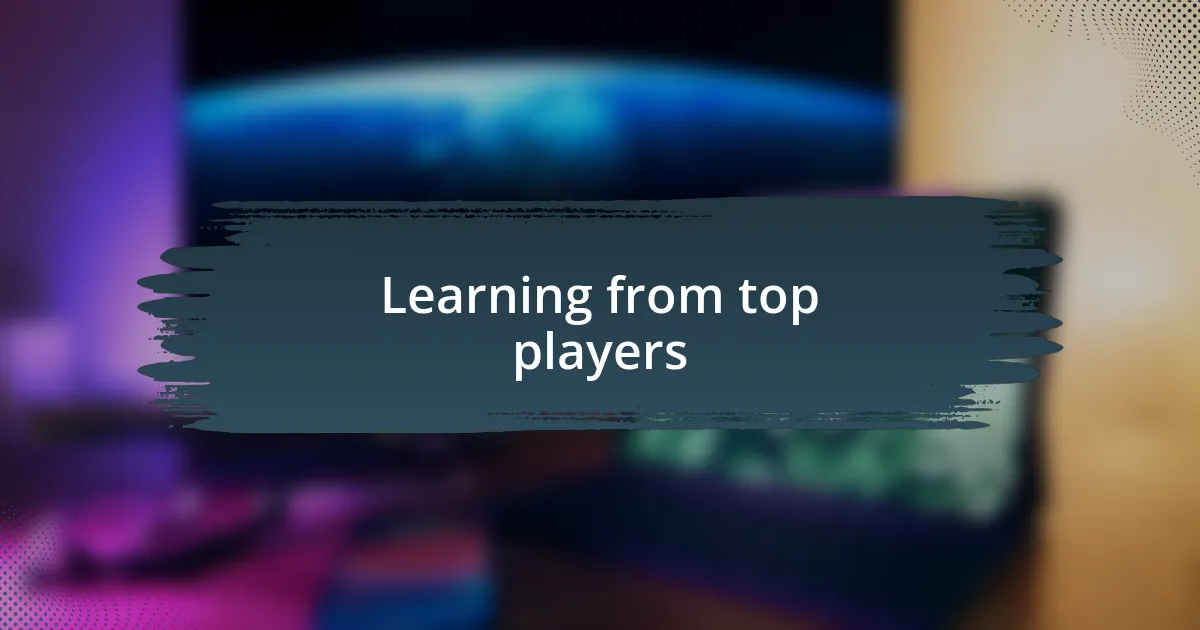
Learning from top players
Learning from top players opened my eyes to strategies I hadn’t considered before. I vividly recall watching a renowned streamer dissect his gameplay live; it was like uncovering a treasure map. His insights on positioning and map control seemed so simple yet were incredibly effective. I often find myself asking, how can I incorporate these techniques into my own play? Trust me, even slight adjustments can yield remarkable results.
As I immersed myself in the community, I started analyzing professional tournaments. The sheer precision and teamwork displayed by top players were inspiring. After witnessing a nail-biting finals match, I had this urge to emulate their communication in my own squad. I realized that it’s not just about making the perfect shot—it’s about anticipating your teammates’ moves and adapting your strategy on the fly. This shift in mindset was pivotal; I found my gameplay becoming more dynamic and fluid simply by learning from the best.
Joining a few Discord servers dedicated to Call of Duty further enrichened my experience. Engaging in discussions with other enthusiasts and top players often revealed nuances that I had missed in my gameplay. One seasoned player once shared how studying his mistakes transformed his approach to the game. It got me thinking—what if I started reviewing my own gameplay with that same critical eye? The idea of turning failures into learning opportunities was invigorating and truly reshaped how I view each match.
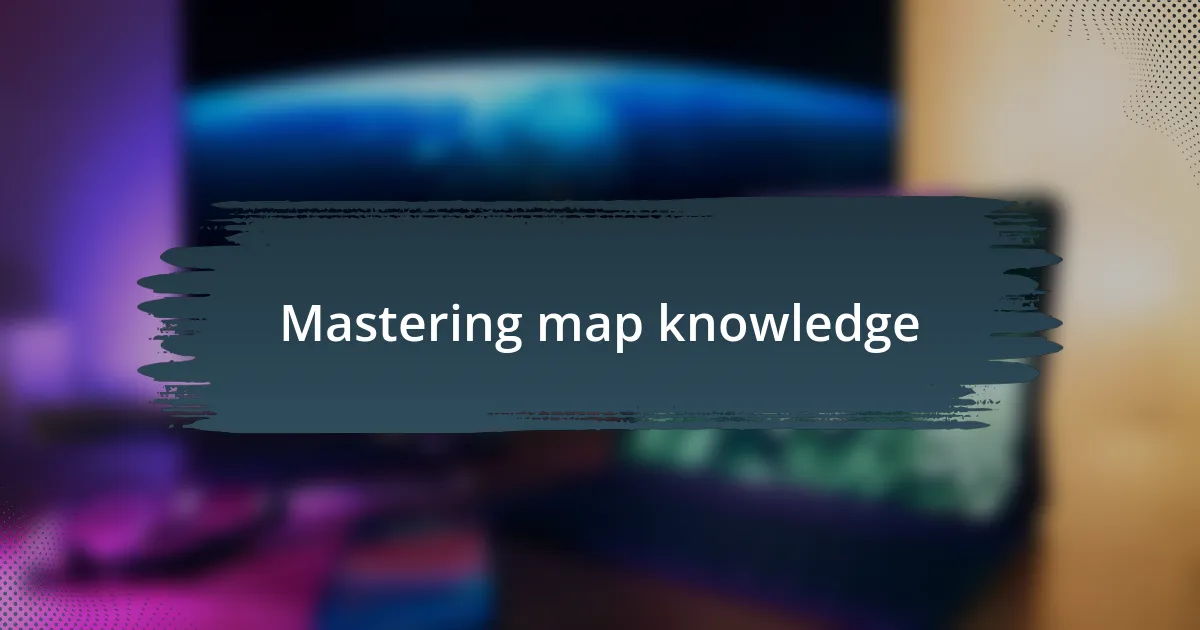
Mastering map knowledge
When I first started playing, I often ignored the maps, treating them as mere backdrops for the action. However, I quickly learned that understanding the layout, choke points, and high-traffic areas can be a game-changer. For instance, I remember a match on Shoot House where knowing the optimal routes allowed me to flank enemies effectively. It felt like I had the upper hand, catching them off guard more than once.
As I dove deeper into map knowledge, I began to appreciate how each design tells its own story. I still recall my first time on Verdansk. The sprawling layout was overwhelming, and at first, I felt lost. But after a few matches, I started noticing crucial landmarks and common pathways that players favored. I often ask myself how many times I could have avoided being ambushed if I had just familiarized myself with those spots earlier. This realization has transformed my approach; now, I actively memorize map details and adapt my strategies accordingly.
I also discovered that practicing in private matches, specifically focusing on map exploration, significantly boosted my confidence. I started navigating different angles, finding hidden spots, and mastering quick escapes. The thrill of executing a perfectly timed ambush in a familiar setting is exhilarating. I often think—how much better could players become if they dedicated time to understand their virtual arenas? For me, becoming one with the map truly elevated my gameplay experience.
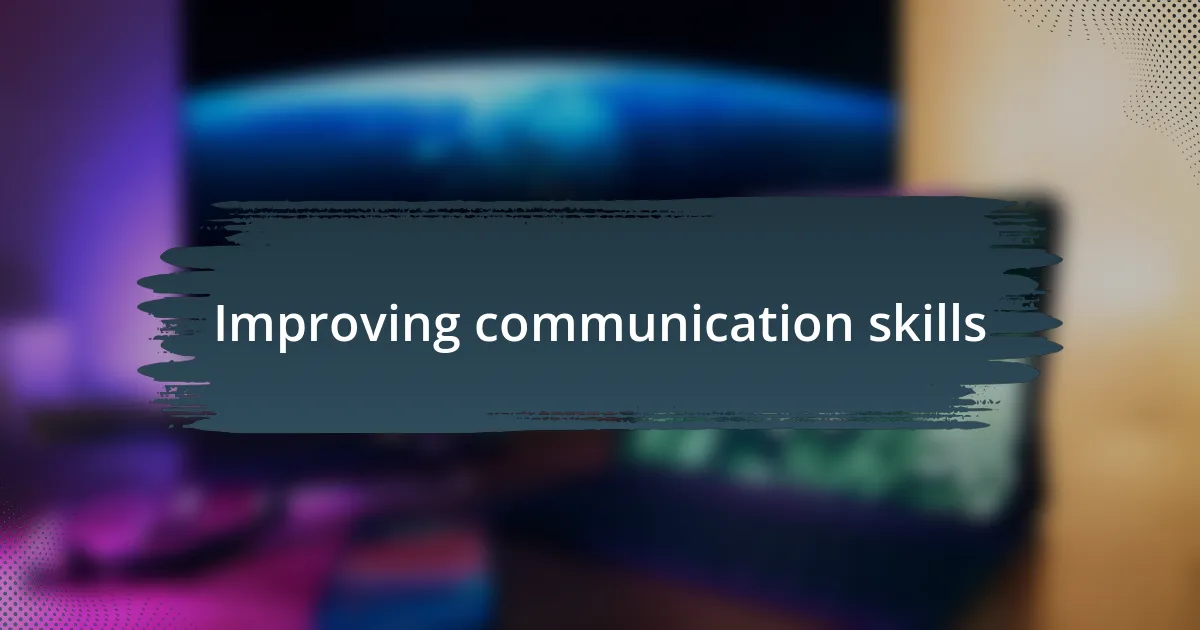
Improving communication skills
When I first jumped into team matches, I realized quickly that my solo gameplay mentality wouldn’t cut it. Communicating effectively with teammates became essential; I remember a particularly challenging match where consistent callouts led to a tight victory. Simply saying “enemy at B” instead of vague phrases makes a world of difference—it’s the clarity that can save lives in-game.
I started using my mic more during matches, even when I was unsure about my contributions. I found that communication created a network of support; players responded positively to my alerts, and it fostered a sense of camaraderie. The more I spoke, the more I felt a responsibility to strategize, prompting me to think critically about positions and tactics in real time. Have you ever felt that rush of adrenaline when your team’s collective effort swings the tide of battle? That’s the power of good communication in action.
Over time, I began to appreciate how personal interactions during gameplay mirrored my experiences with team sports in school. The trust built through sharing information turned random players into allies I genuinely wanted to support. There was one night where, after a long session, my team did a post-match debrief, discussing what worked and what didn’t. That exchange of ideas and feedback not only sharpened our skills but also strengthened those virtual bonds. It makes me wonder—how much potential do we all leave untapped without fostering true communication in our gaming experiences?
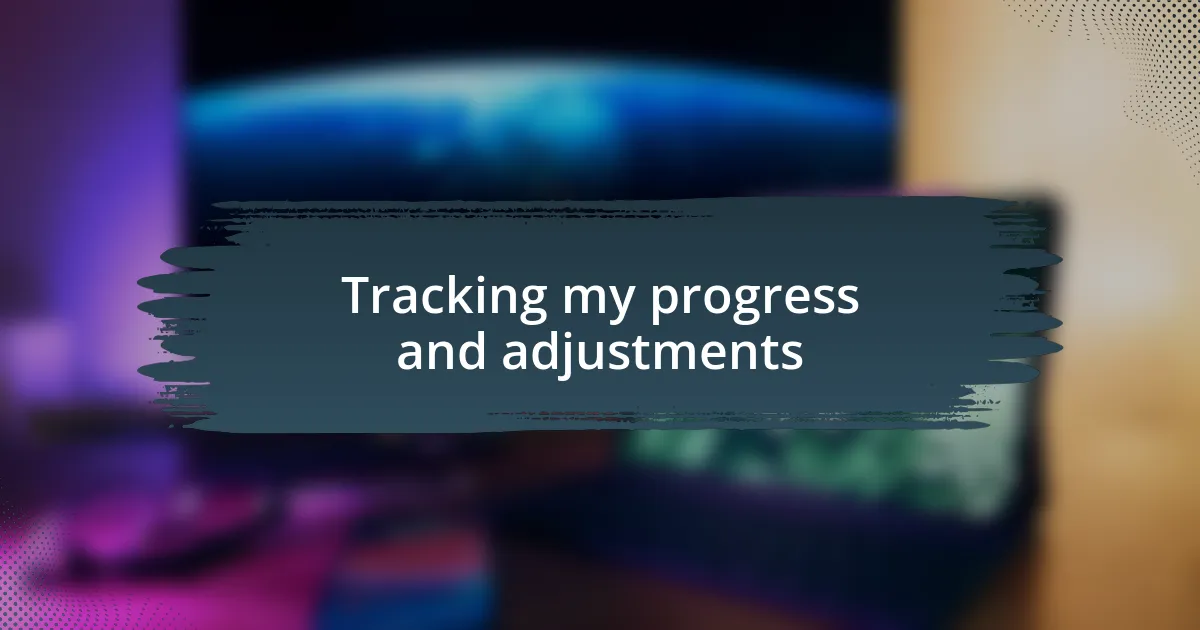
Tracking my progress and adjustments
When I began tracking my progress in Call of Duty, I realized it wasn’t just about kills or victories; it was about understanding my overall performance. I started keeping a simple spreadsheet noting my kill/death ratio and win rates for different game modes. I found it fascinating to see my growth over time—almost like watching a personal graph of my dedication and improvements unfold.
As I analyzed my gameplay data, I noticed patterns that pointed out where I needed to adjust my tactics. For instance, I discovered my accuracy dipped significantly when using specific guns, prompting me to switch my loadouts continuously until I found something that felt natural. Isn’t it interesting how a simple tweak in your weapon choice can open doors to entirely new strategies and success?
I also took the time to review past match recordings, which offered invaluable insights. Watching my gameplay helps me see mistakes I wouldn’t have noticed in real-time, almost like having an out-of-body experience. Have you ever revisited a moment in a game and found yourself cringing at a choice you made? Those reflections became learning opportunities, pushing me to refine my approach with each session.

